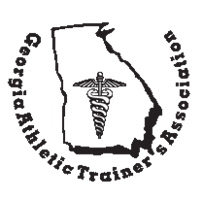
Research from the Korey Stringer Institute shows only about a third of high schools across the country have a certified athletic trainer.
In Georgia, numbers from the Georgia Athletic Trainers Association show athletes in more than half of high schools in the state have access to an athletic trainer. Northside High School in Warner Robins is one of those schools.
Vonnie Hitchcock, the athletic trainer for the Eagles, says her job includes more than just taping and stretching.
“We are trained in injury prevention, illness prevention, injury and illness recognition, evaluation, treatment, rehab, taping,” Hitchcock said.
That’s on top of her training in emergency care. Just by spending a few minutes in her training room before football practice, anyone could see her student athletes rely on her for much more.
“You might be the first medical person that they’ll see, you might be the only medical person that they see,” she said. “The athletic training umbrella covers a lot.”
Student athletes over at Wilcox County High School have to rely on coaches and emergency medical technicians for help, if they’re injured.
“We would love to have someone out there that’s trained in the medical field to be able to handle some of the issues that we have to handle,” Wilcox’s head football coach and athletic director, Mark Ledford, said.
Like for many other schools throughout the nation, Ledford said his budget blocks him from hiring an athletic trainer.
“If it was something we had to fit into our budget, we would have trouble paying it,” he said. “We’ve already been cut back on the number of coaches that we do have, and our budget is just enough to get us by.”
According to the National Bureau of Labor Statistics, the average salary of an athletic trainer in Georgia is around $45,000. That doesn’t include cost of supplies like tape and rehab equipment.
A recent study published in the Journal of Athletic Training highlights several other factors that keep high school athletic directors from hiring athletic trainers. The article cited reasons like the athletic director may feel they don’t have the power in the school system to ask for an athletic trainer, limited resources in rural areas, and misconceptions about what an athletic trainer does.
To help level the playing field between schools like Northside and Wilcox, Pennsylvania Representative Ryan Costello drafted House Resolution 112, which is named the Secondary School Student Athletes’ Bill of Rights.
Vice President of the Georgia Athletic Trainers Association Tom Bair said it highlights the basic safety requirements all schools should strive for.
“You have the right to good coaching. You have the right to a good environment. You have the right to safe equipment,” Bair said. “Most of it is common sense stuff, but it draws awareness to the need to do whatever we can, everything we can, to make sports as safe as possible for all of those involved.”
The resolution does not mandate that schools hire athletic trainers.
“It may be the genesis to a movement to get athletic trainers in the schools,” he said.
He said some schools in Georgia have tried partnering with another school in the area and hiring one athletic trainer for both. He said others rely on nearby hospitals or clinics to provide outreach services.
“It’s just a matter of being creative and working within the resources that you have and hopefully this will get the ball started,” he said.
The legislation was referred to the Subcommittee on Health in February. It currently has 27 co-sponsors, including Georgia Representative David Scott from District 13.
ORIGINAL ARTICLE:
http://www.13wmaz.com/story/news/local/2015/11/05/georgia-schools-athletic-trainers/75202380/